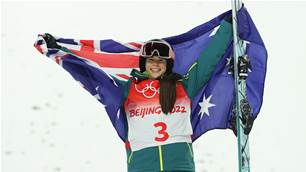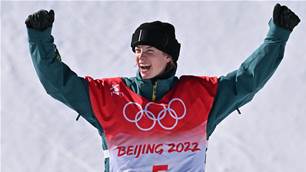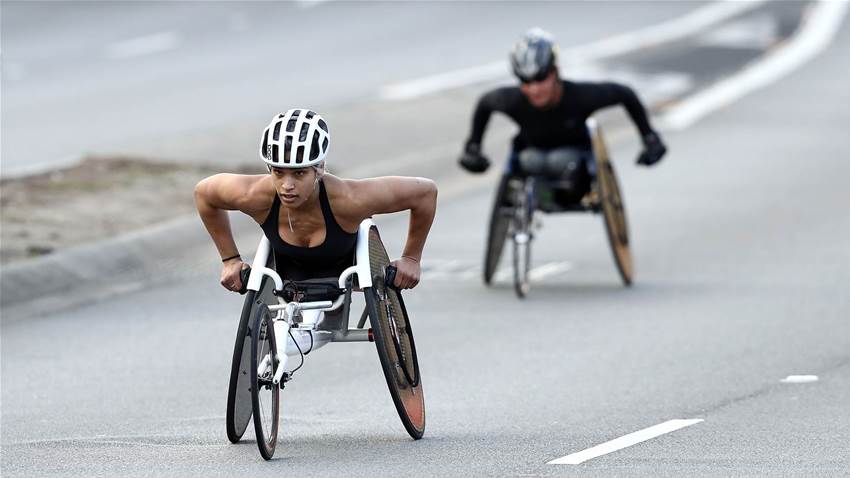Dual Commonwealth Games gold medalist Madison de Rozario believes the 2020 Tokyo Paralympics has the power to change the perception of disabilities.
It is less than one year until Tokyo throws open its doors to the world and just 396 days until the Paralympics gets underway.
Unfortunately in many parts of the world, including southeast Asia, disabilities are still discriminated against.
However, this could change when the Paralympics comes to town. The 2012 London Paralympics was one of the most successful events of its kind, and a history-making one too, with 2.7 million tickets sold.
The result of London having the Paralympics also saw increased accessibility to buildings and public transport, while social awareness about disabilities has changed.
This is, unfortunately, something lacking in Tokyo.
De Rozario believes that just like London, Tokyo could leave a lasting legacy.
"I think one of the most amazing things about the Paralympics, is it just visibility, it's getting to see people competing in elite sport and being athletes," the 25-year-old said.
"And I think that at a Paralympic Games your identifier is as an athlete and not a person with a disability.
"I think most of our sports that once you see it, it's hard not to fall in love with it.
"Being in Tokyo, being in Japan, I think the visibility has so much potential to change perceptions across the board as it did in London.
"I think that's the power of it is just changing socially how we view disability and I think it's absolutely going to do that next year in Tokyo."
When she was young, de Rozario didn't think she was any different from her two siblings. The Perth native has transverse myelitis, a neurological disease, and has used a wheelchair since the age of four.
She played football (soccer) in the backyard with her sisters where she would be the goalkeeper but as de Rozario grew up she started to notice the social implications that came with being in a wheelchair.
"You sort of realise all the social implications that come with it and so a big part of what most of us are trying to do now is talk less about the physical difficulties that come with it, and more the social aspect, and how we treat people with disabilities and how that actually impacts people's lives," she said.
At the age of 11 or 12, de Rozario remembers starting her first para-sport, which happened to be wheelchair basketball and tennis. However, she admits that she is horribly uncoordinated so they weren't the sports for her.
She soon enough came across wheelchair racing and loved it immediately despite not being the best when she first started out.
"Racing is it's very technical and even if you've been pushing a wheelchair around your whole life is still very different," de Rozario said.
"So it took me a long time to work out but I just love it from the beginning because it was individual and it was fast."
Since then she's gone on to represent Australia at three consecutive Paralympics since Beijing 2008 coming away with three silver medals.
Unfortunately, it hasn't been an easy journey to get to this point.
In 2015, de Rozario took a leap of faith and moved across the country, away from her mum and sisters, to Sydney to take her racing career to the next level.
The funding structure athletes receive is dependent on their metal results. So at a World Championships or Paralympics, whatever an athletes result at that event would dictate the financial support they get until the next world stage event.
The cost of wheelchair racing is quite significant. Just for the frame of the chair alone, it is $4,000 with wheels coming to about $2,500. That's just the base level equipment and doesn't include the costs of travelling to events and accommodation.
For de Rozario, she remembers that during one race that she needed to medal.
"I remember going to be in my last race in Rio which was 800m and I hadn't made my way onto the podium for an individual event yet," she said.
"I remember thinking in this 800, which is less than two minutes long, that I need to get on the podium. It's not the best feeling."
De Rozario speaks about her struggles with money in a new mini-series with finance company OneVue.
Looking ahead to Tokyo 2020, de Rozario is searching for that elusive gold medal to add to her three silvers. It's both an exciting and stressful time.
"On the one hand it is so exciting because we trained for four years, but it's also stressful,"
"We have a countdown on in the gym that I trained in and every time I see it, I just feel like a little more stress. but it's exciting. We've done all the work so we'll see how it goes."
It's also a bit of a changing of the guard ahead of Toyko with long-time and beloved para-athlete Kurt Fernley having retired at the end of the 2018 Commonwealth Games.
De Rozario is stepping into Fernley's role and while there's a bit of pressure to live up to his loud voice and powerful messages, she's excited to take on the role.
"He's done some really amazing things for our sport and continues to even now that he's retired," she said.
"I think honestly, this is one of the responsibilities that comes with the Paralympics and platform is growing and I hope I'm doing justice and representing all these people in the community."
Related Articles

Australia Winter Olympics gold-medal drought ended by Jakara Anthony

Updated: Australia's Olympic curling pioneers get two wins after 'late reprieve'













